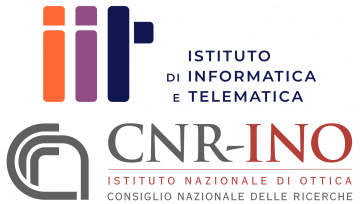
Consiglio Nazionale delle Ricerche
The National Research Council of Italy (CNR) is the is the largest public research institution in Italy, the only one under the Research Ministry performing multidisciplinary activities. Cnr’s mission is to perform research in its own Institutes, to promote innovation and competitiveness of the national industrial system, to promote the internationalization of the national research system, to provide technologies and solutions to emerging public and private needs, to advice Government and other public bodies, and to contribute to the qualification of human resources. CNR performs HPCQS project through CNR-INO and CNR-IIT:
National Institute of Optics (CNR-INO – Florence, Italy): it is the largest Research Insitute in Italy in the field of atomic physics, molecular physics and optics, with about 300 people working in the hystorical headquarters of Arcetri and in the other 7 centres. In collaboration with the most prestigious Institutions worldwide, CNR-INO scientists provide key R&D contributions with applications in many areas, from environment to health, from aerospace to security, from cultural heritage to quantum technologies.
Institute of Informatics and Telematics (CNR-IIT – Pisa, Italy): research on the Internet and its social and technological evolutions: mobile (5G/6G) and pervasive Internet of Things, social network analysis and cybersecurity, Internet-applied algorithmics and smart mobility, knowledge organization and cyber intelligence, artificial intelligence and quantum computing and communications.
Role within HPCQS
CNR will contribute to the definition of the infrastructure software, with a focus on the design and implementation of the interface to QS, with optimised management and online scheduling of resources (WP3 mainly, WP2 & WP4 for liaison). CNR will also contribute to the development of demonstrators for end-users in UC2 and UC5, focusing on benchmarking the creation of entanglement in many-body systems, and on the development of hybrid classical-quantum phase estimation and quantum machine-learning algorithms (WP5).
Our vision for HPCQS
CNR is strongly committed to the vision of a hybrid QS-CC to efficiently solve problems that are not accessible with classical or quantum devices when used independently. Our vision is to strive for programmable networks for quantum simulation that can be readily interfaced with classical algorithms and artificial intelligence networks implemented with supercomputers for example like what we are currently realising between Firenze, Pisa and Bologna.
- from Cataliotti






